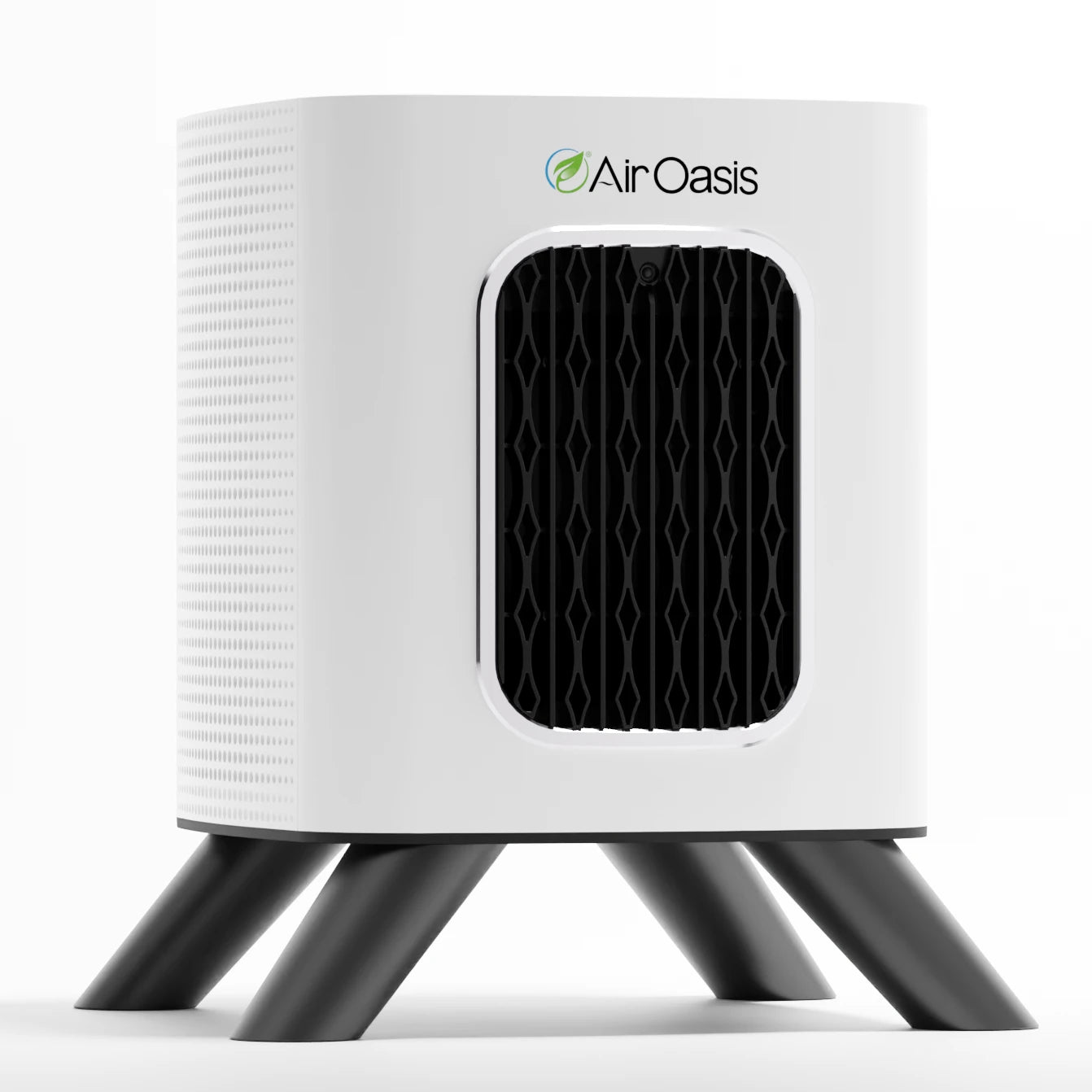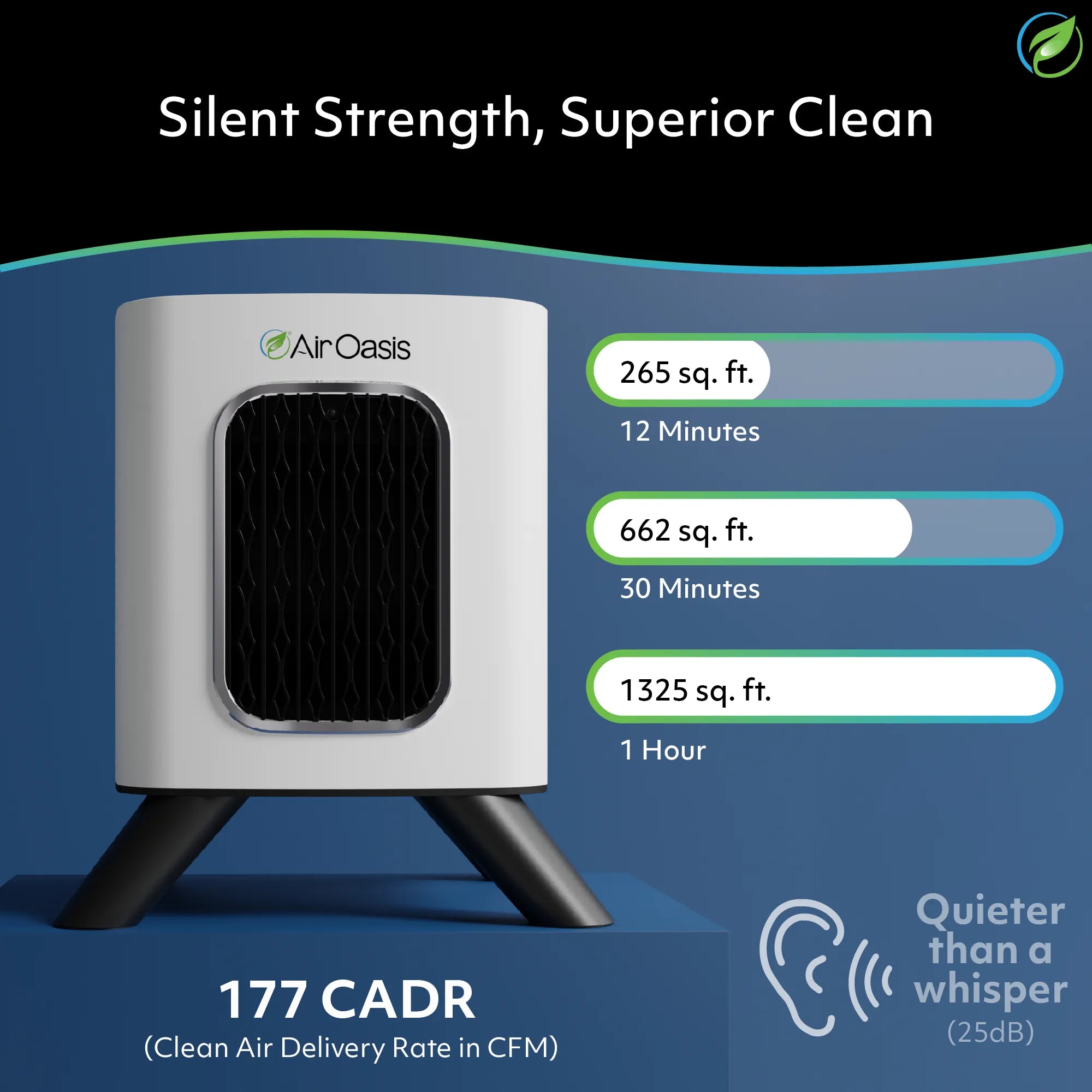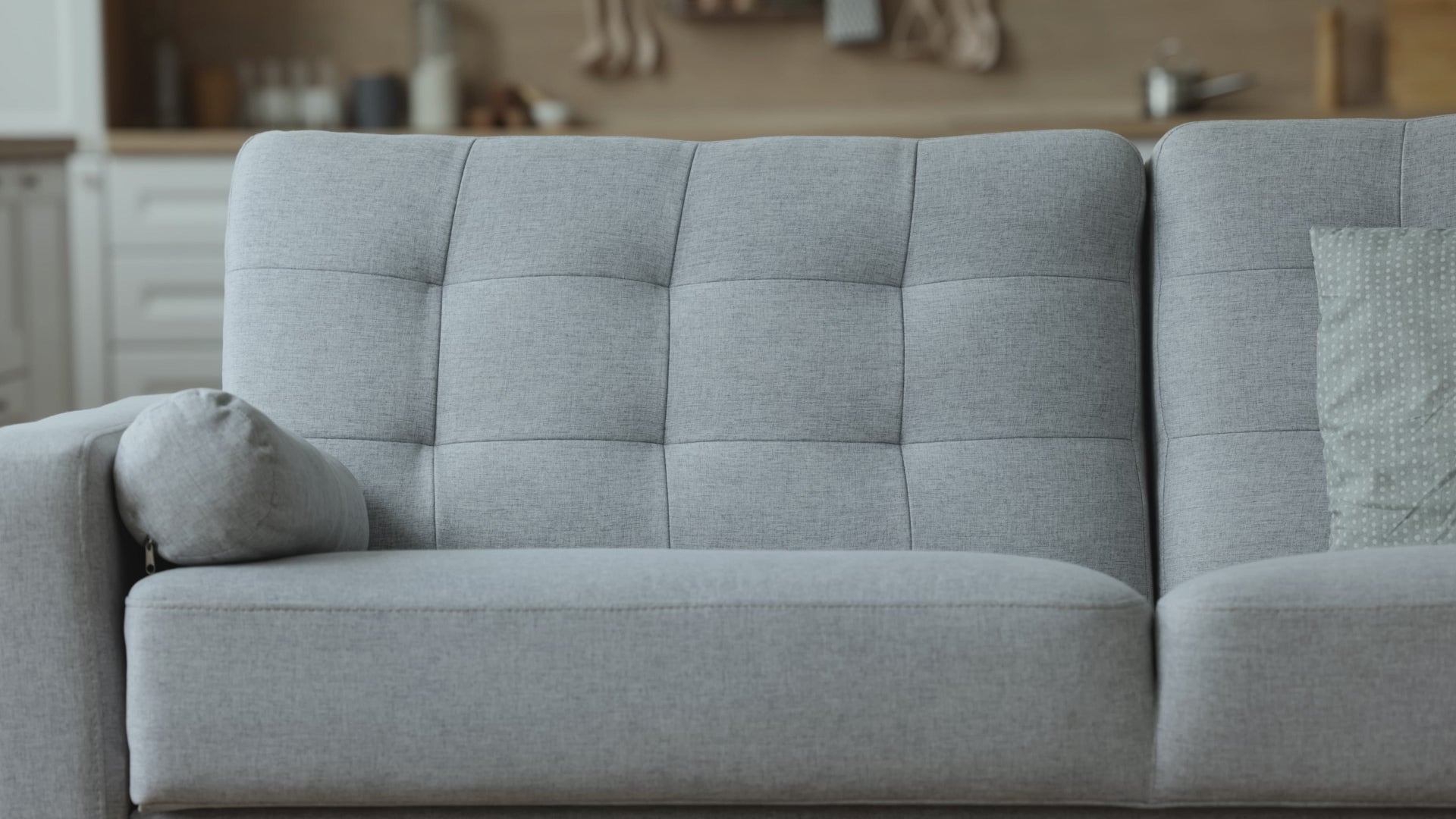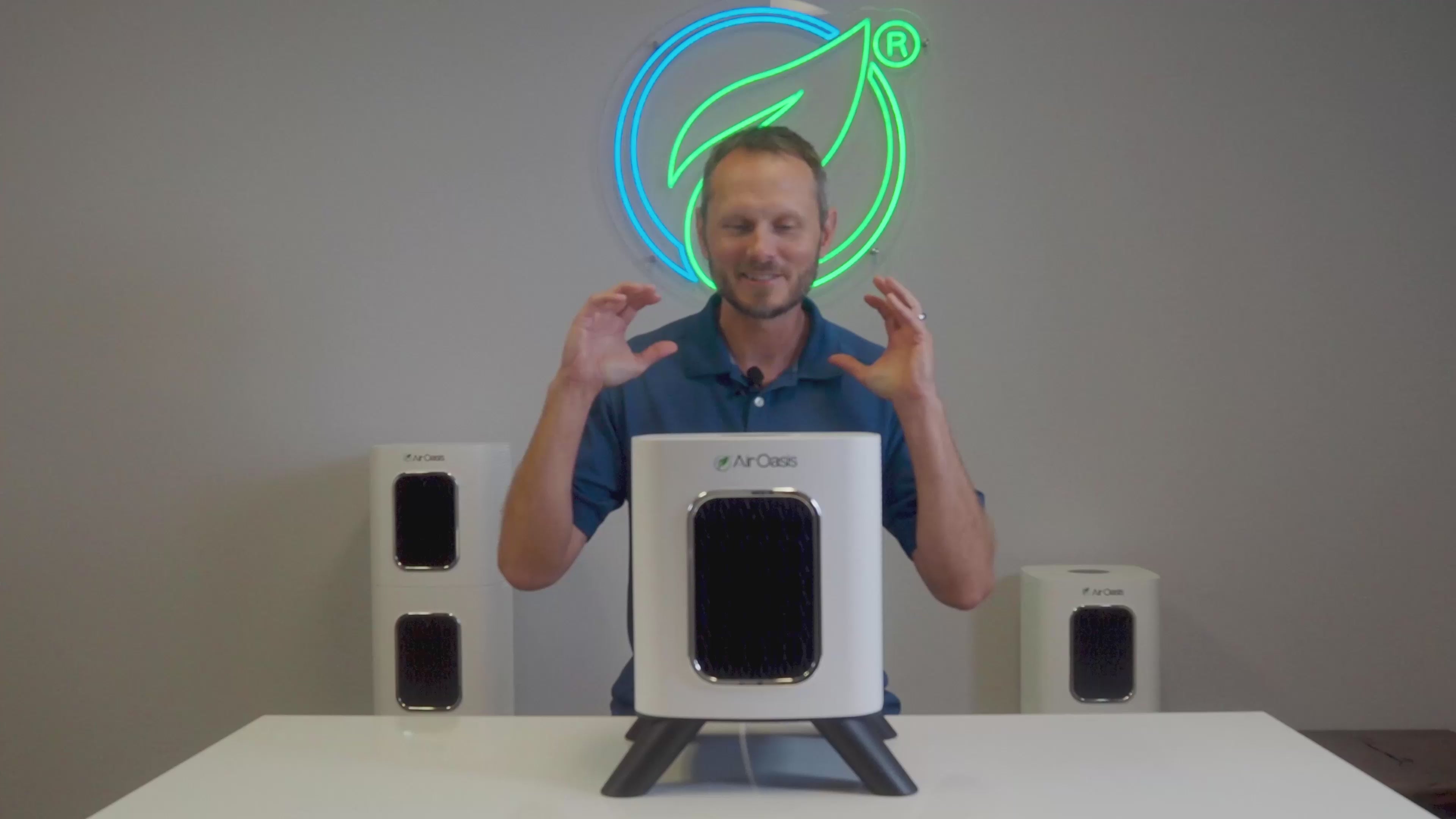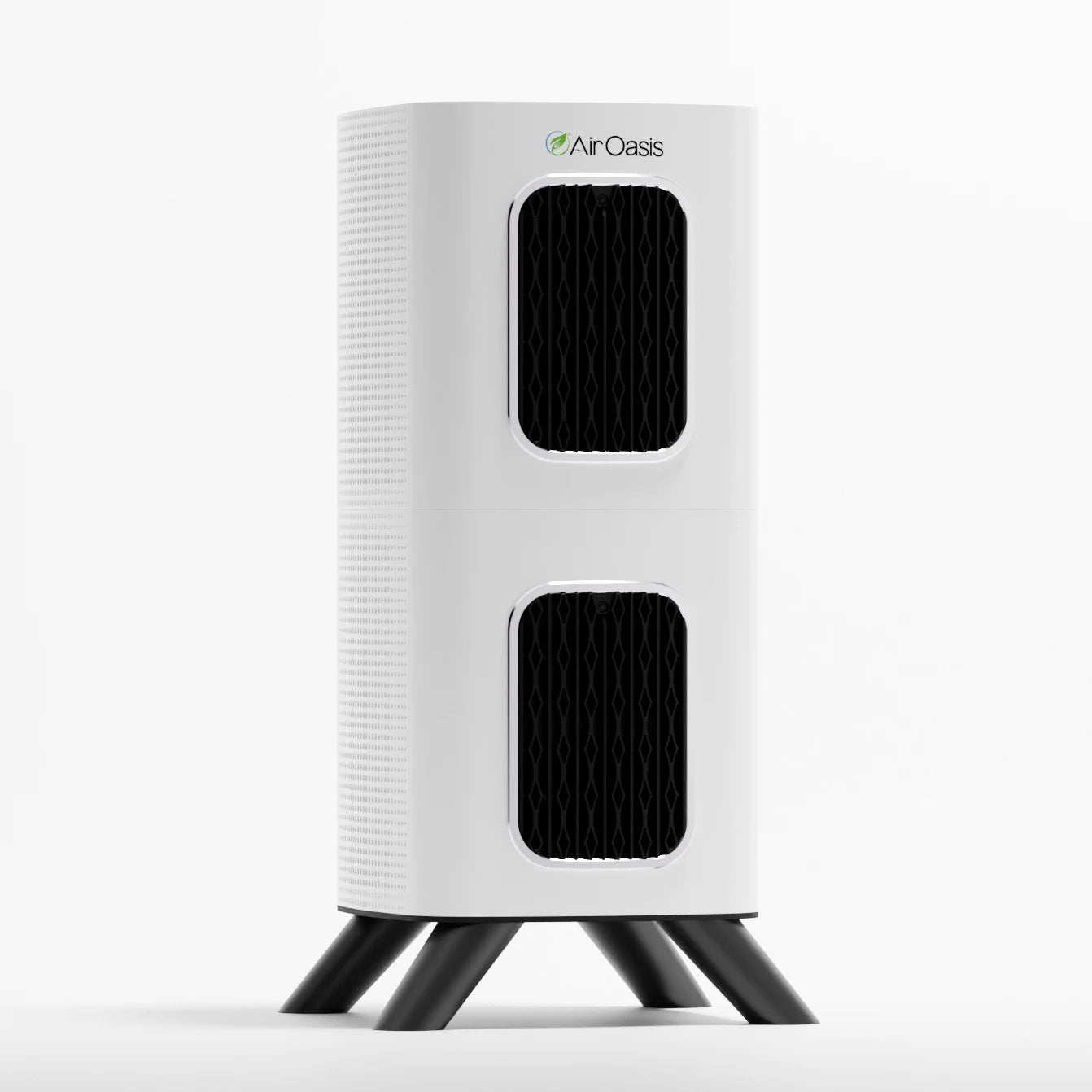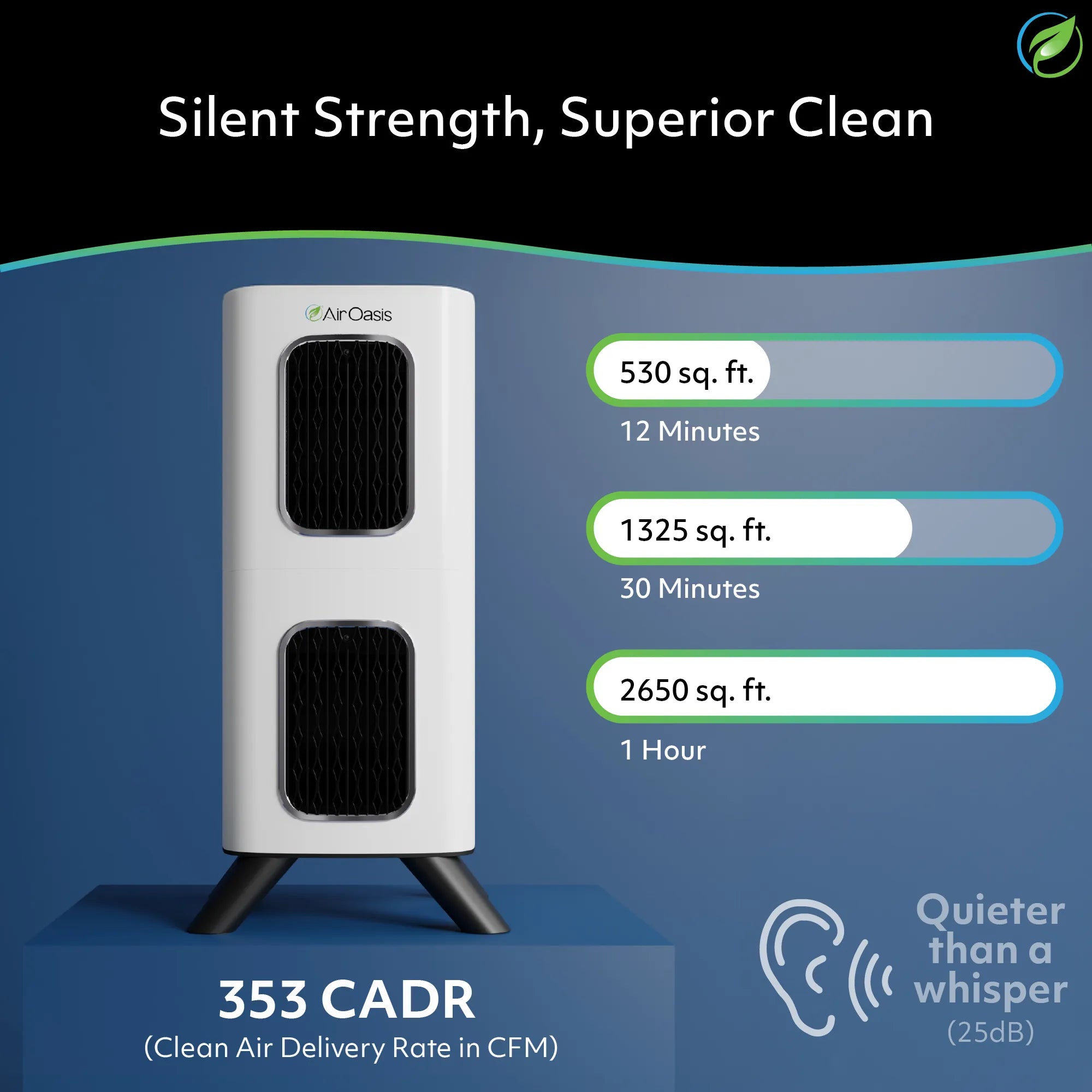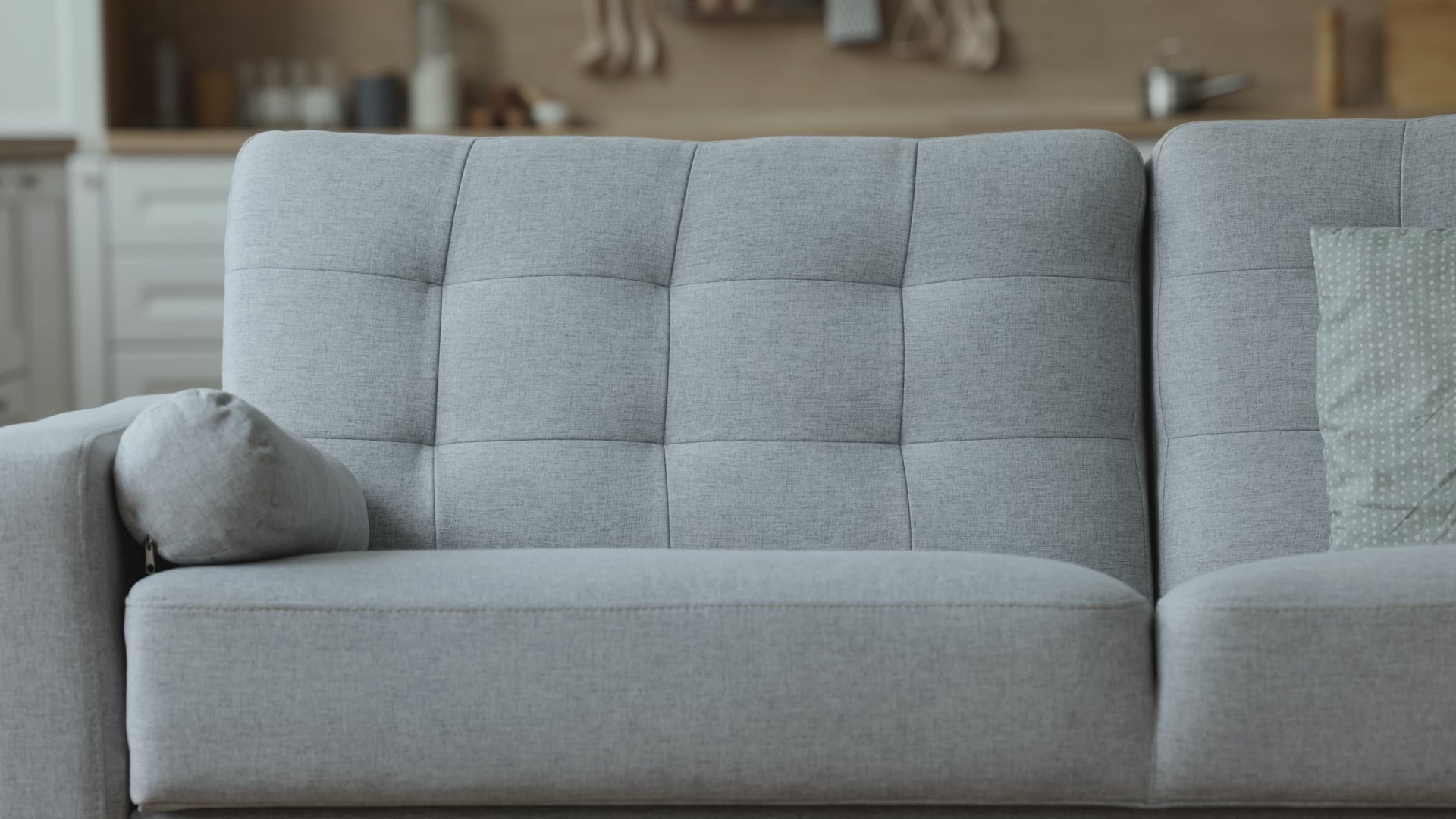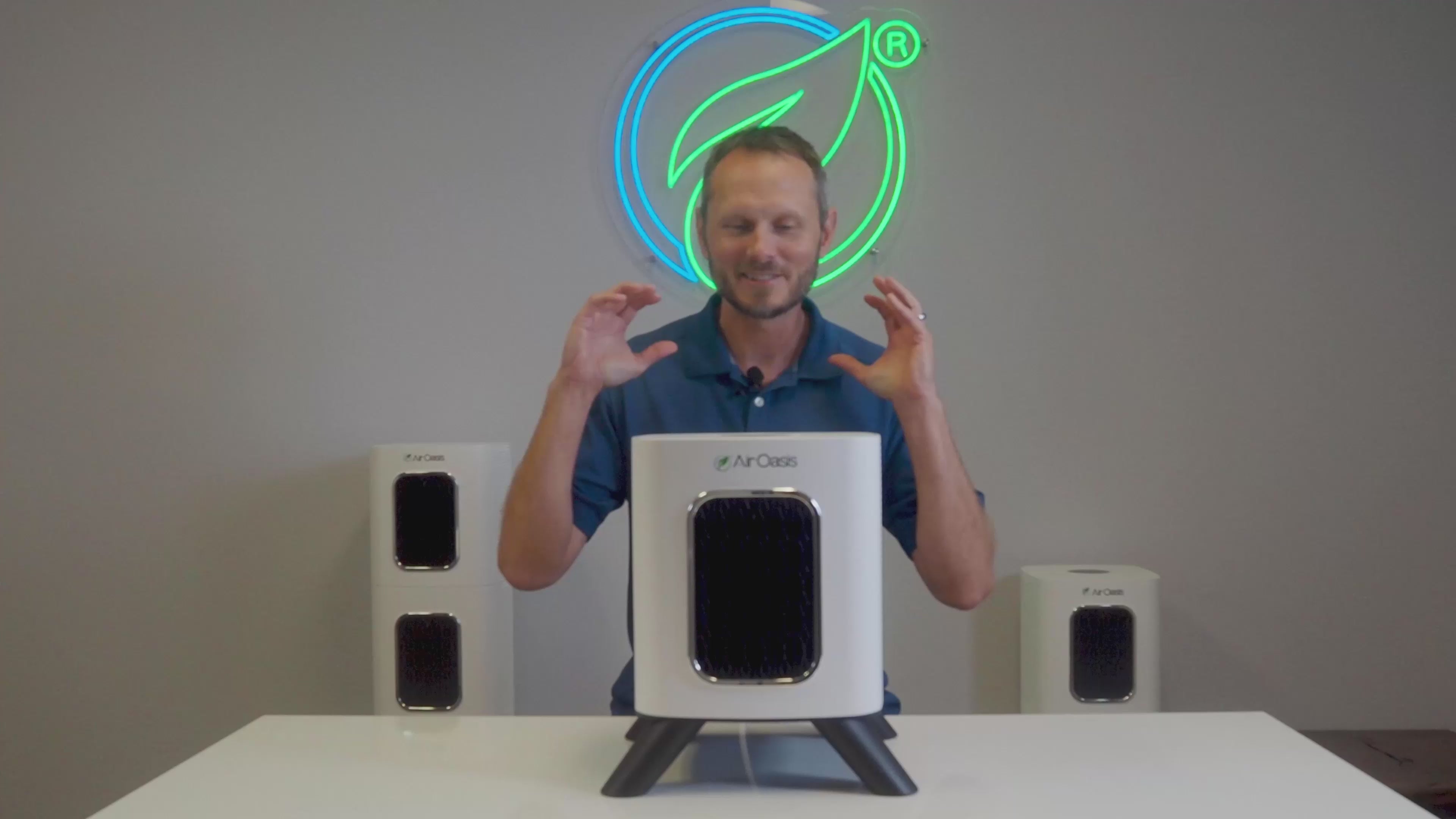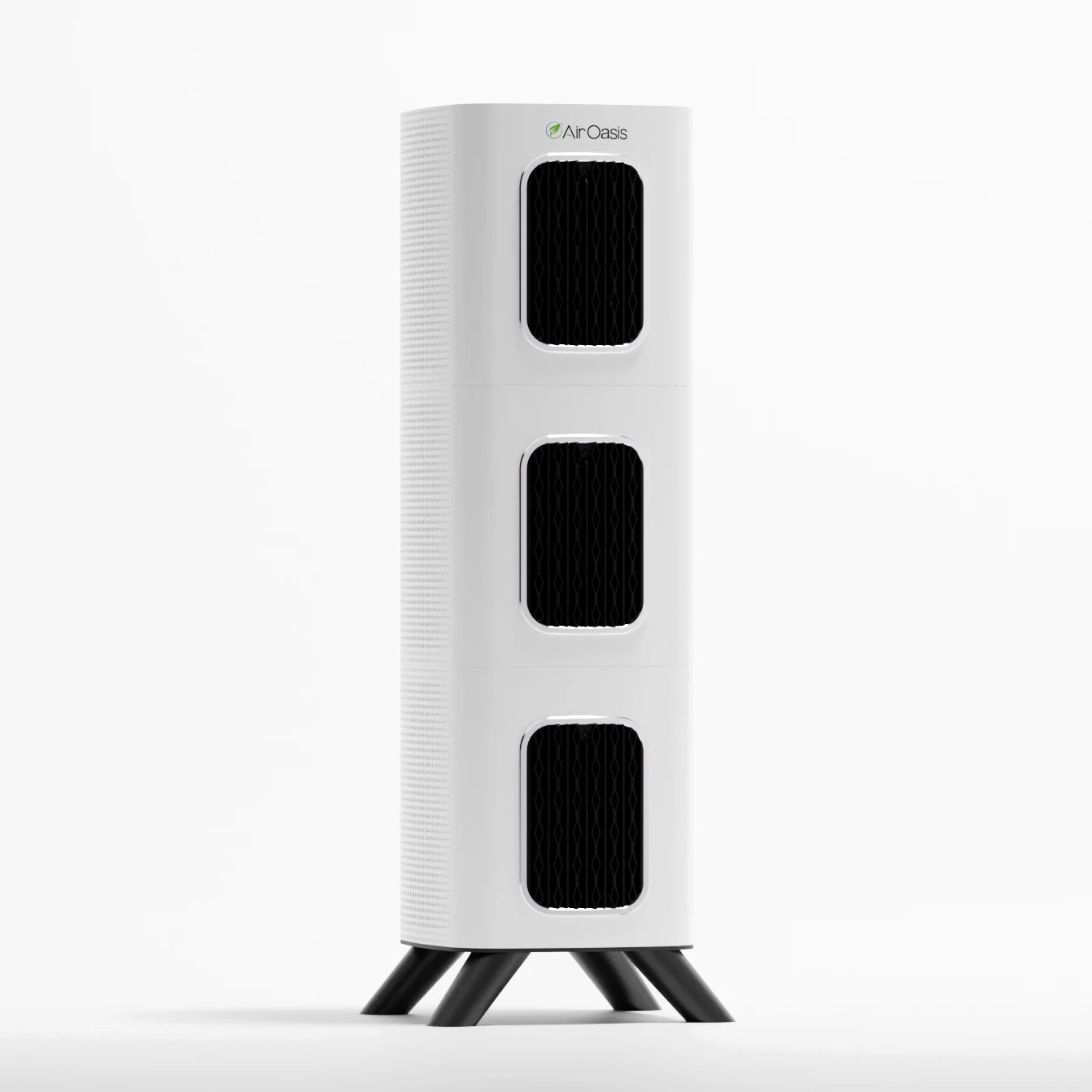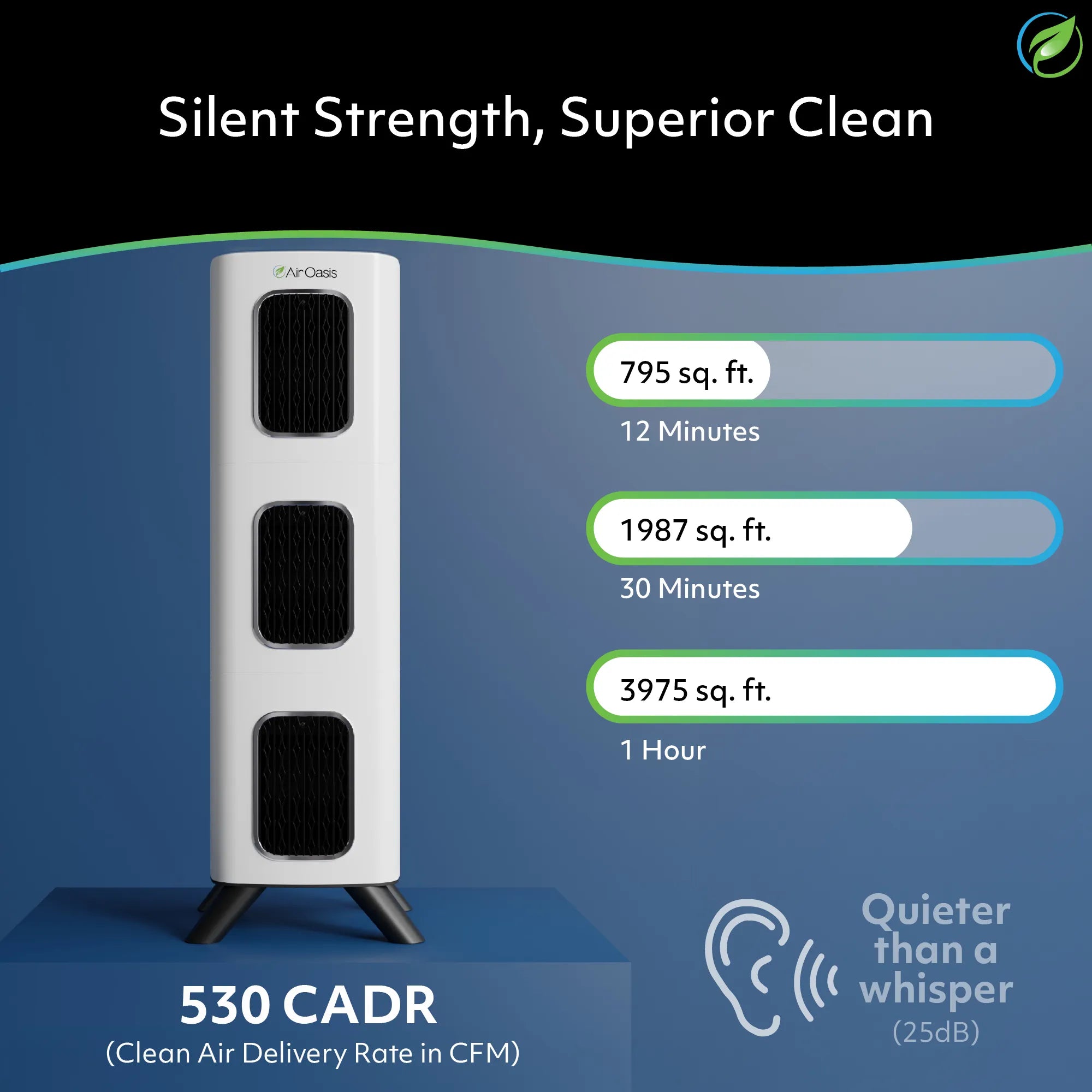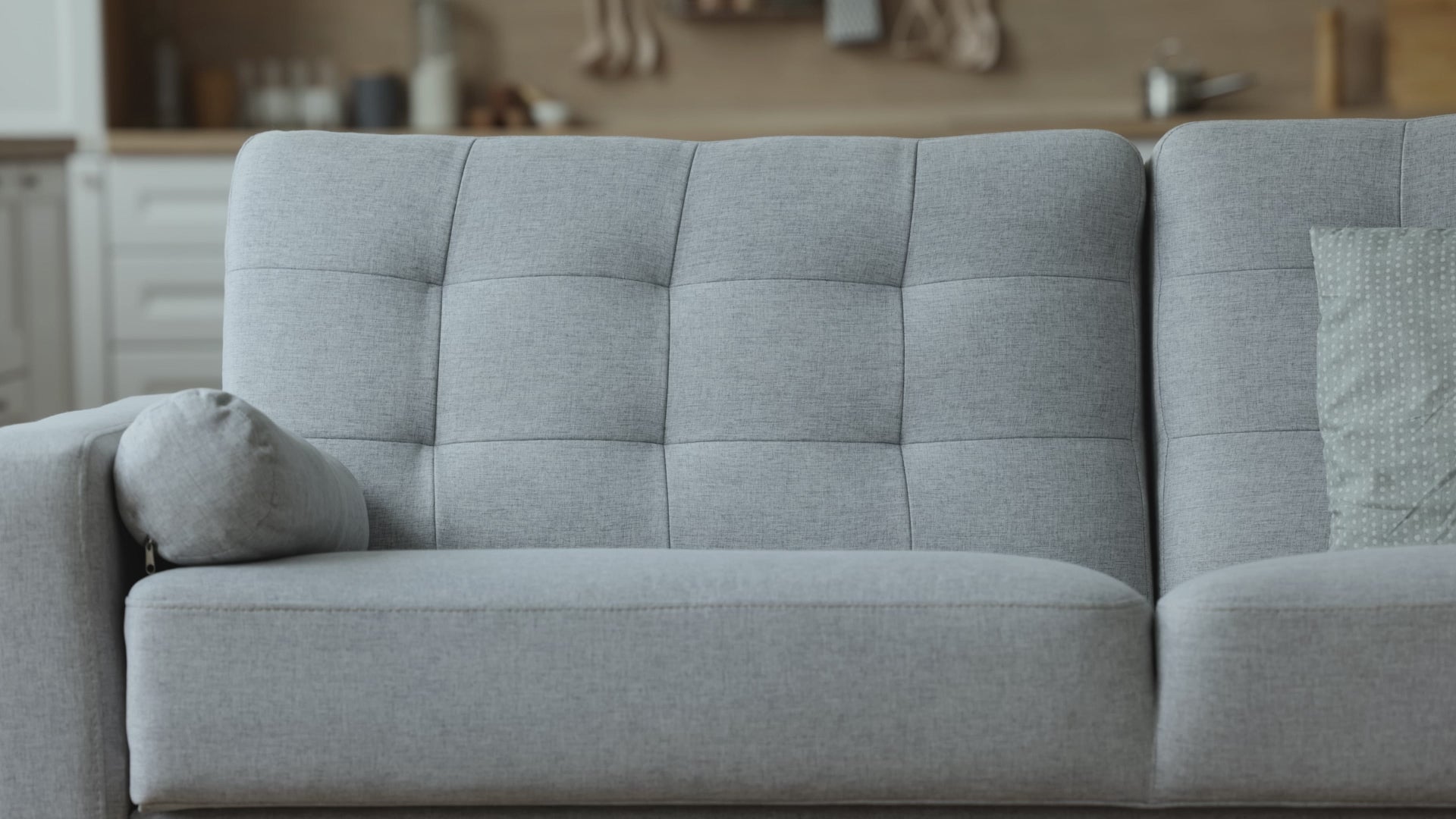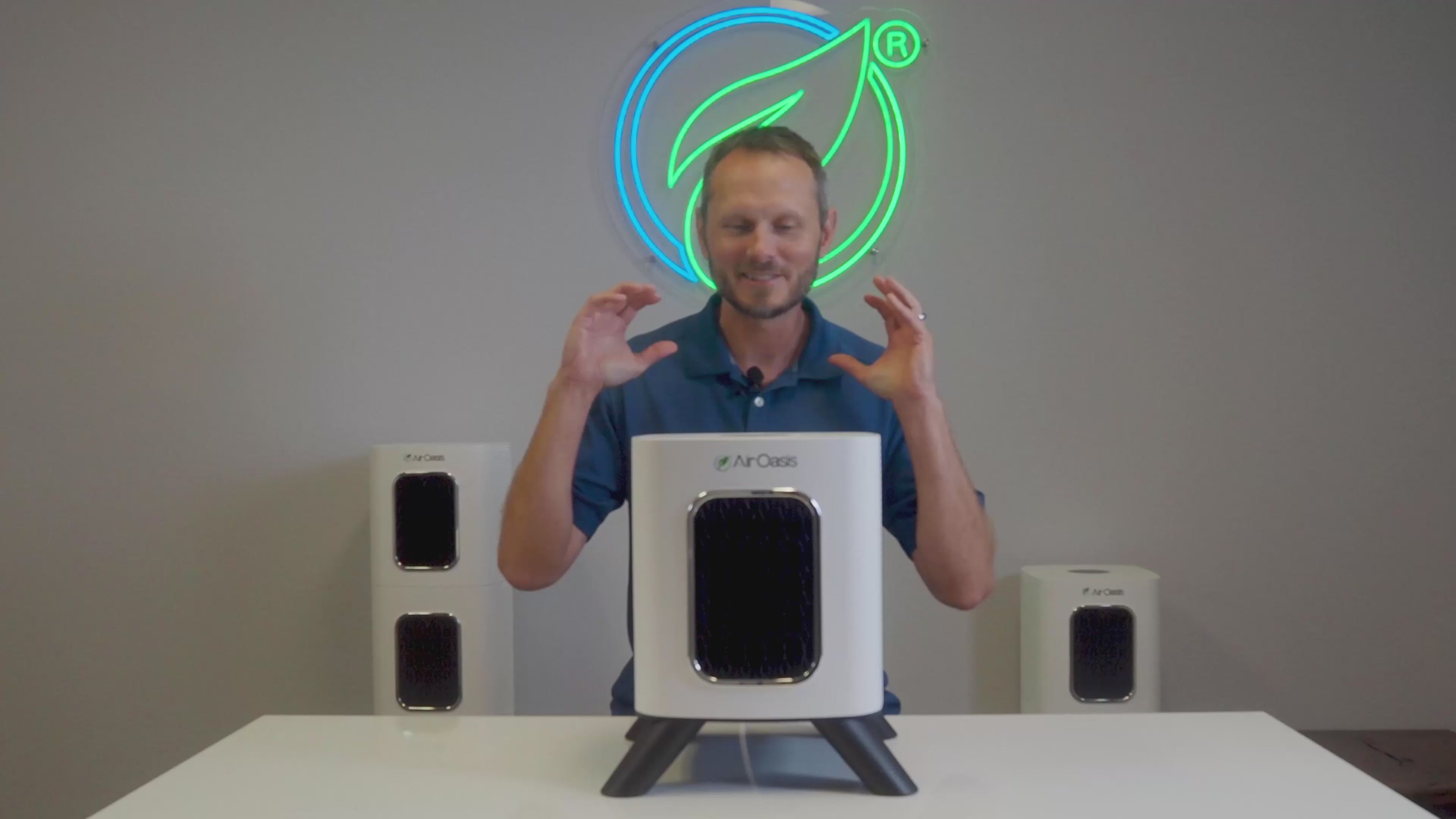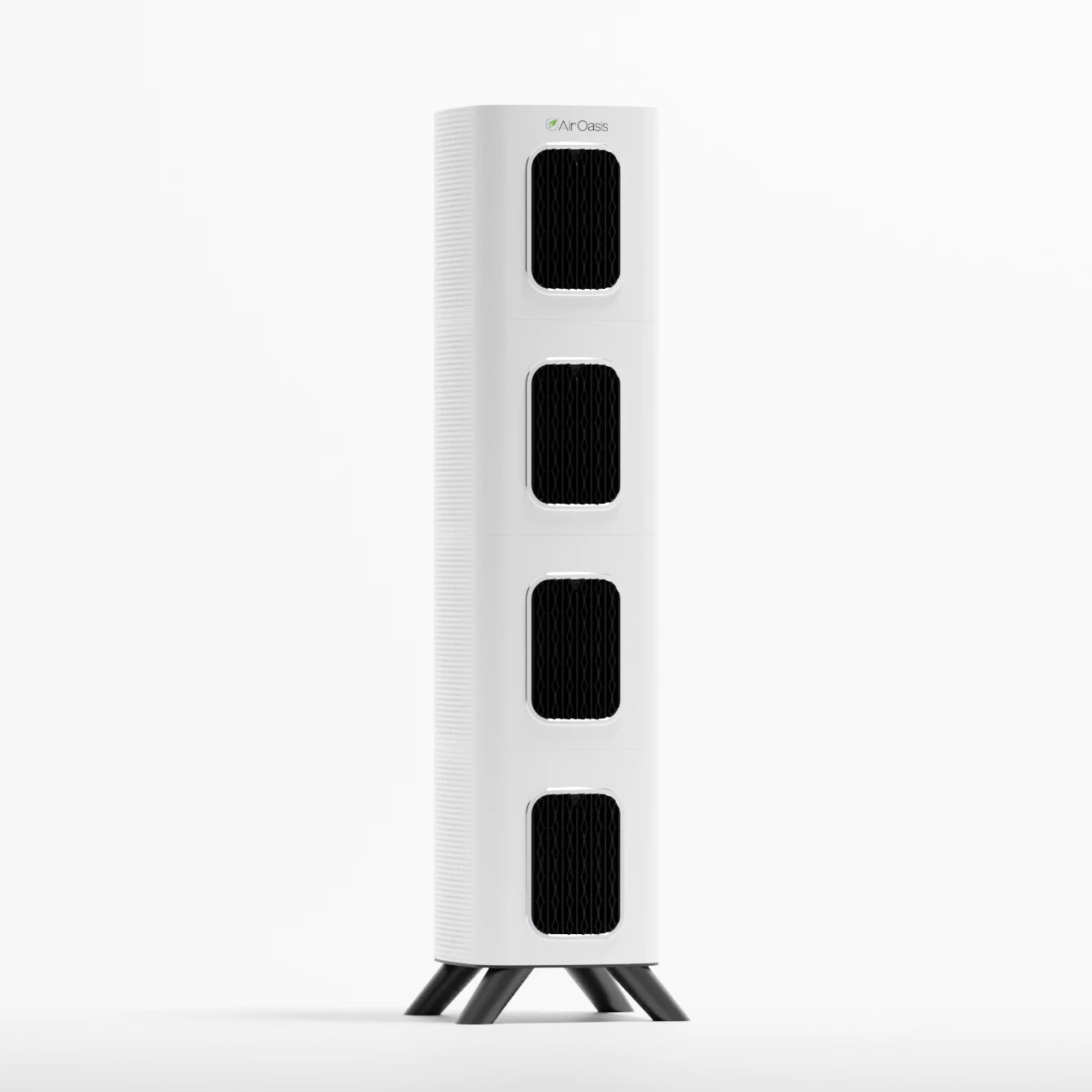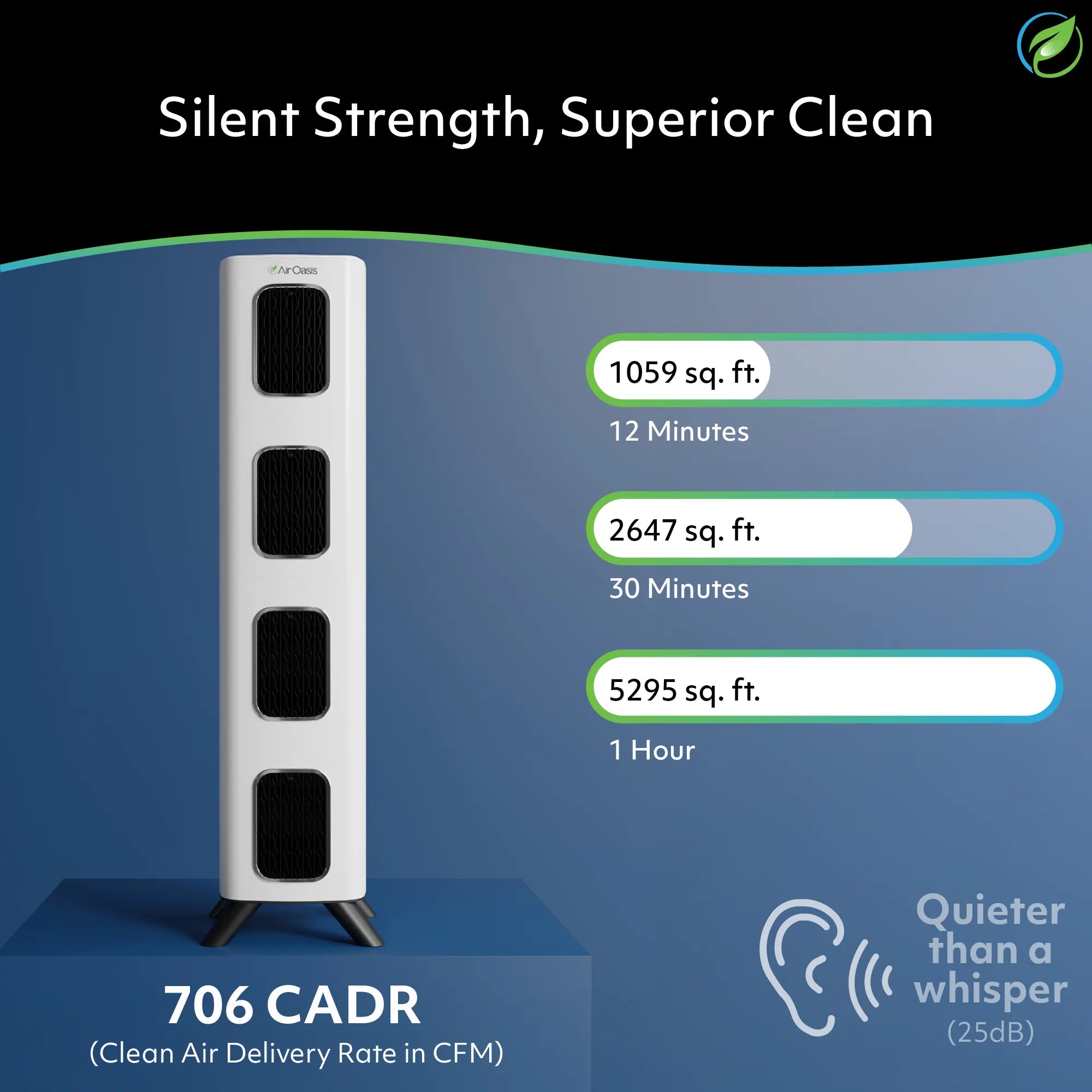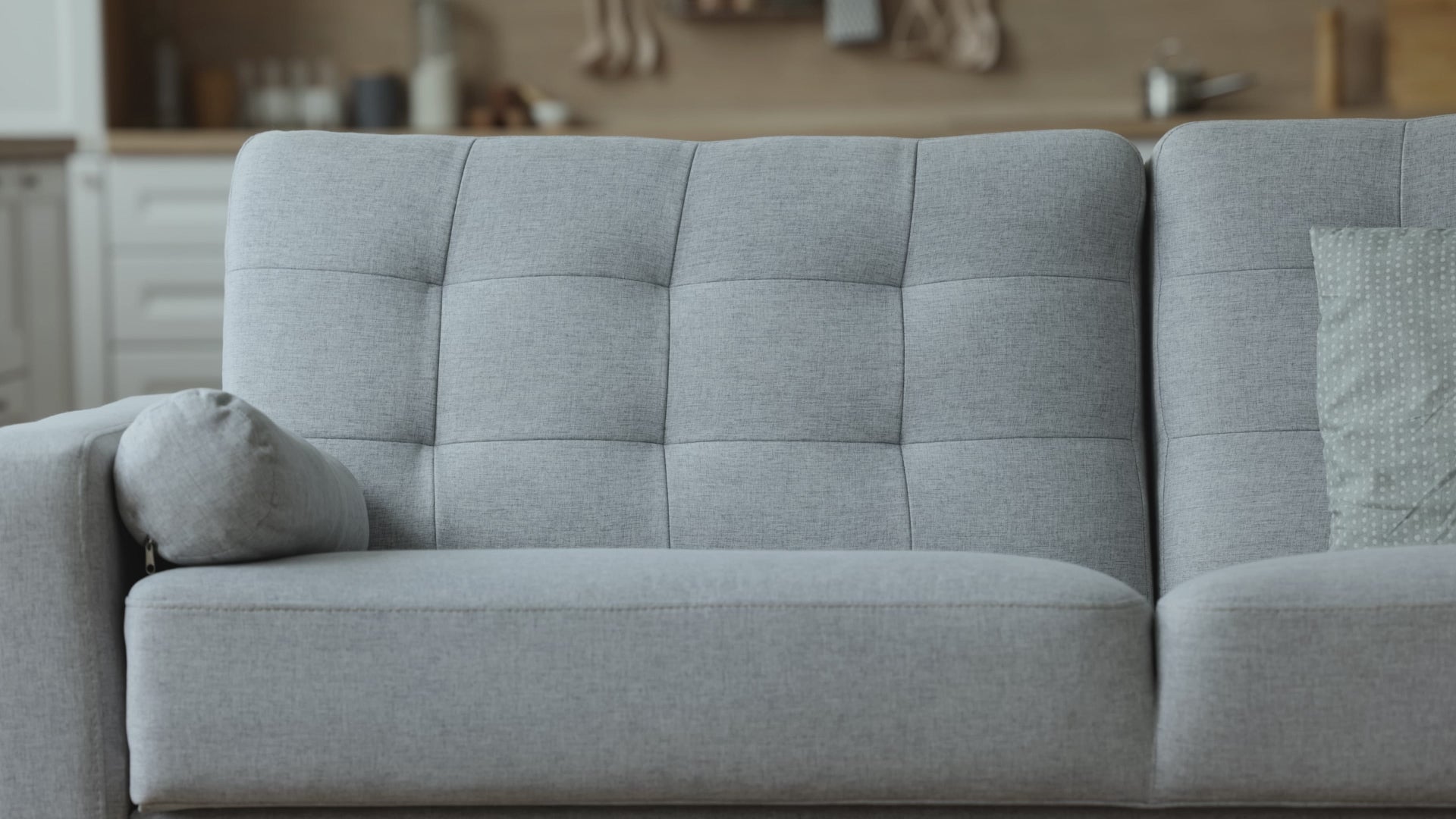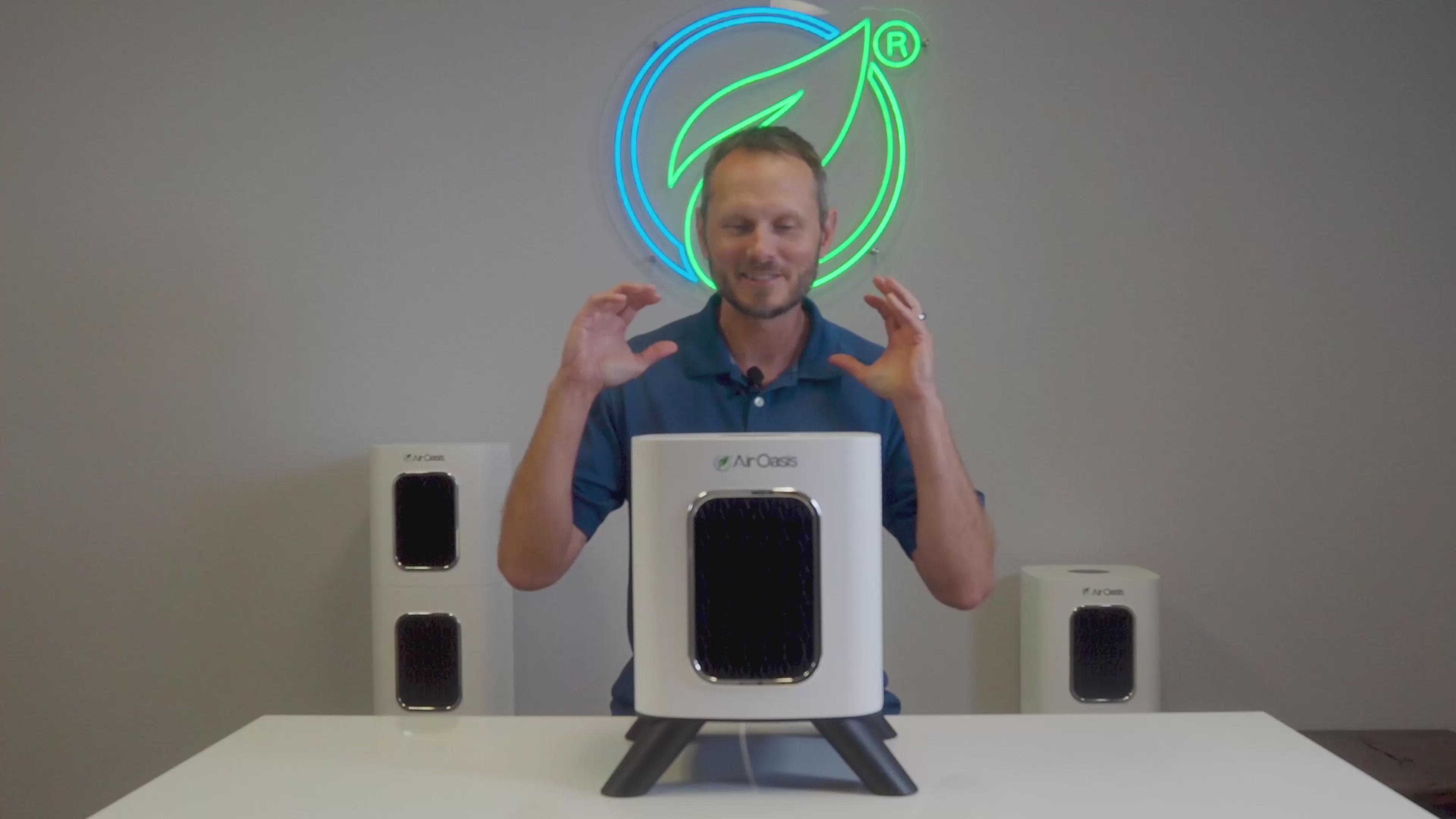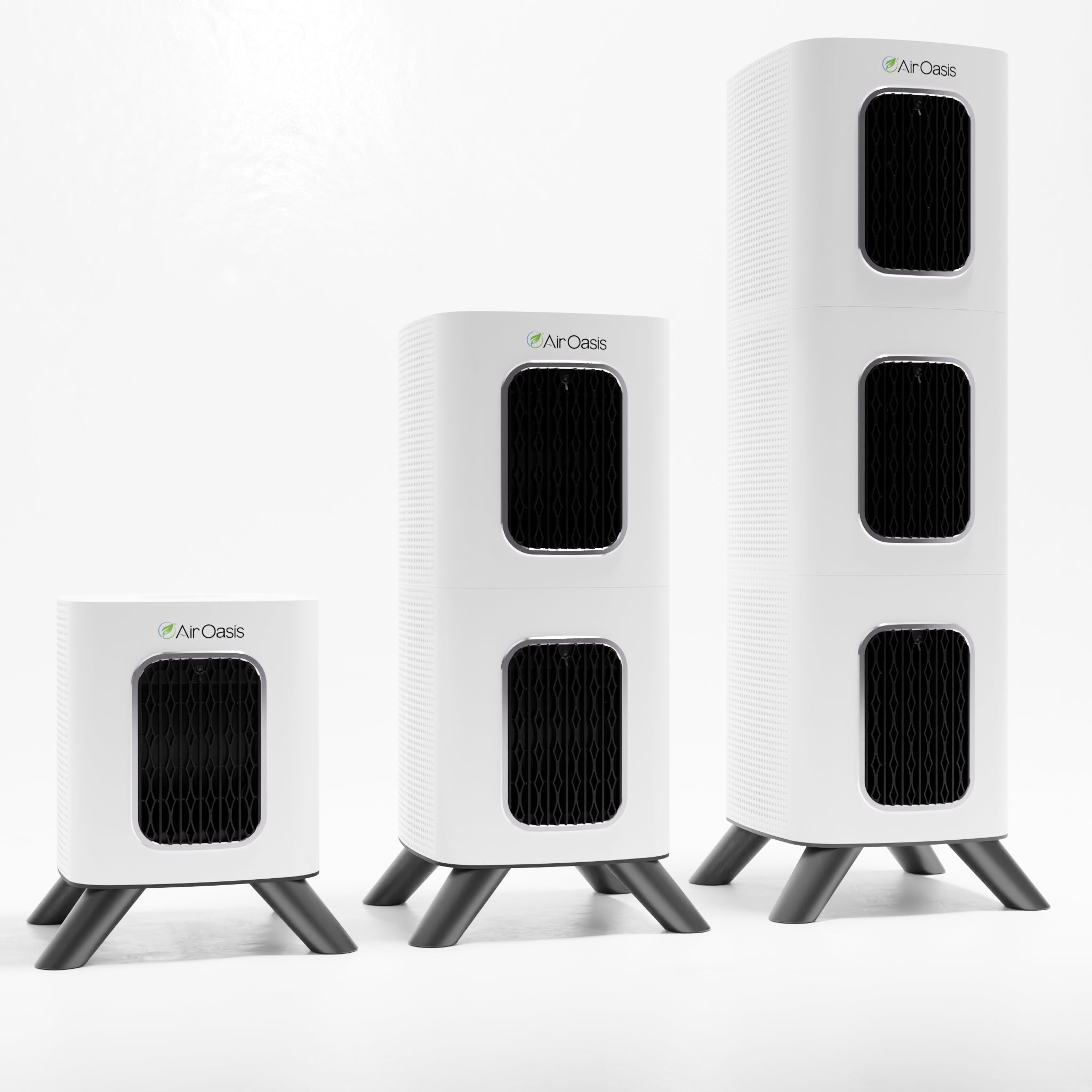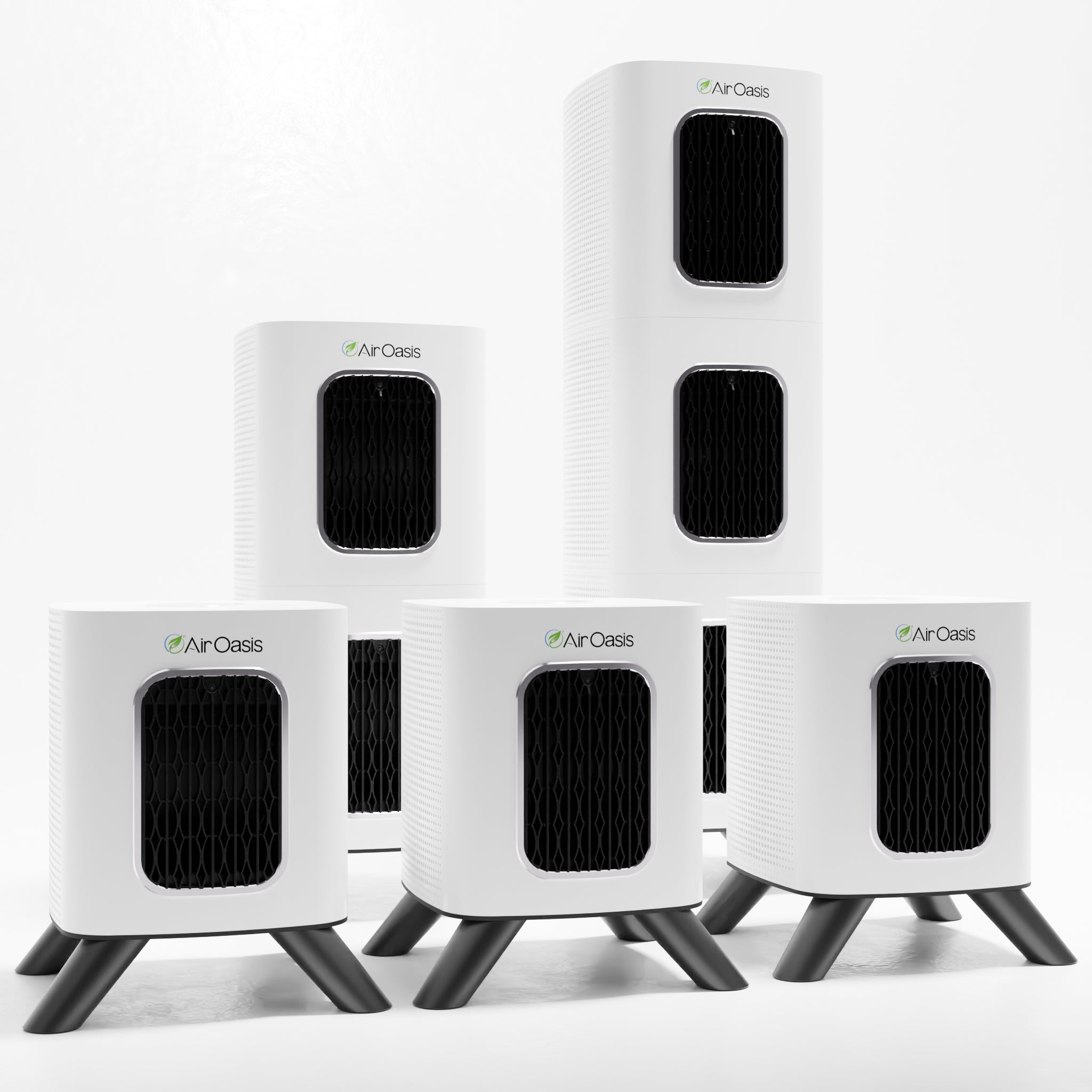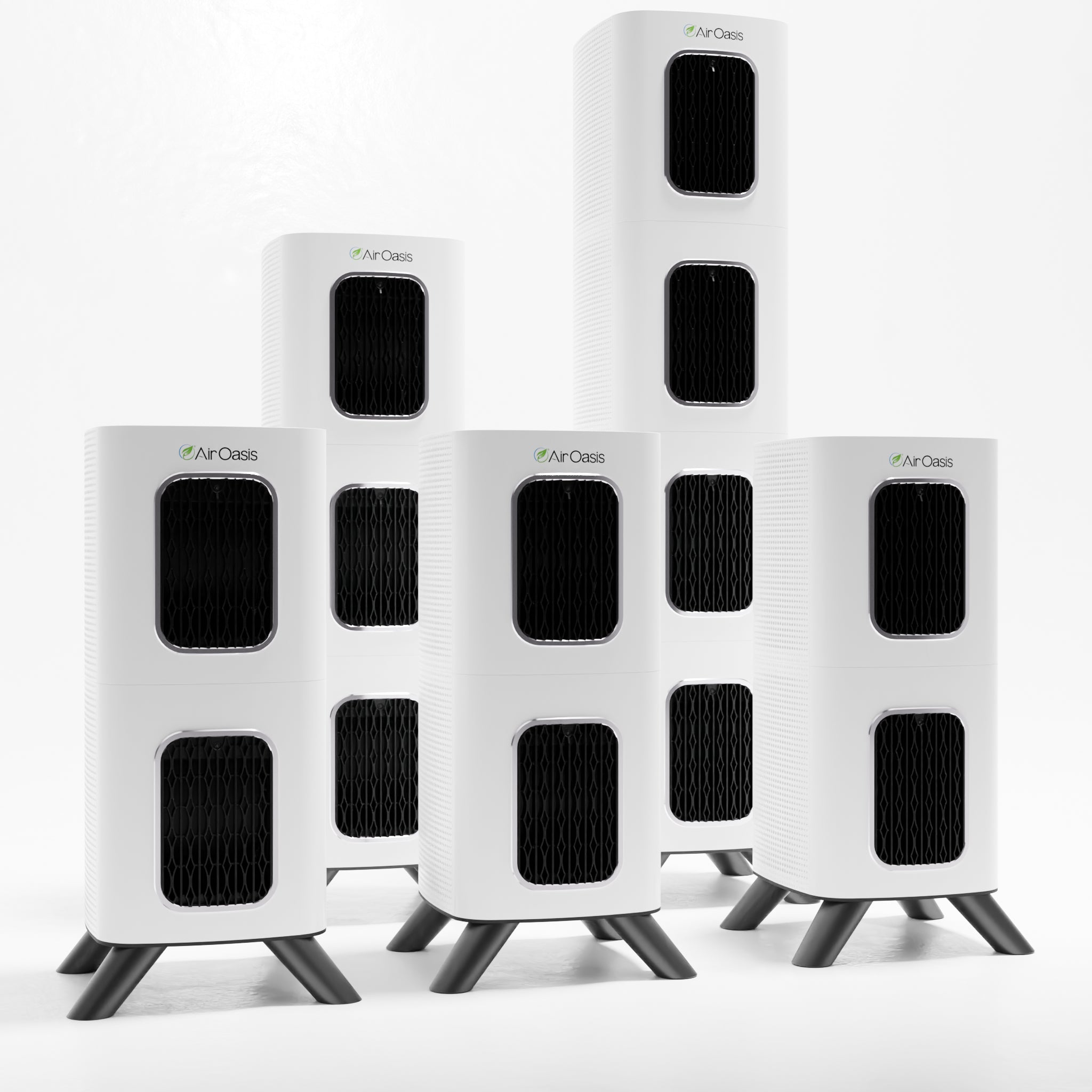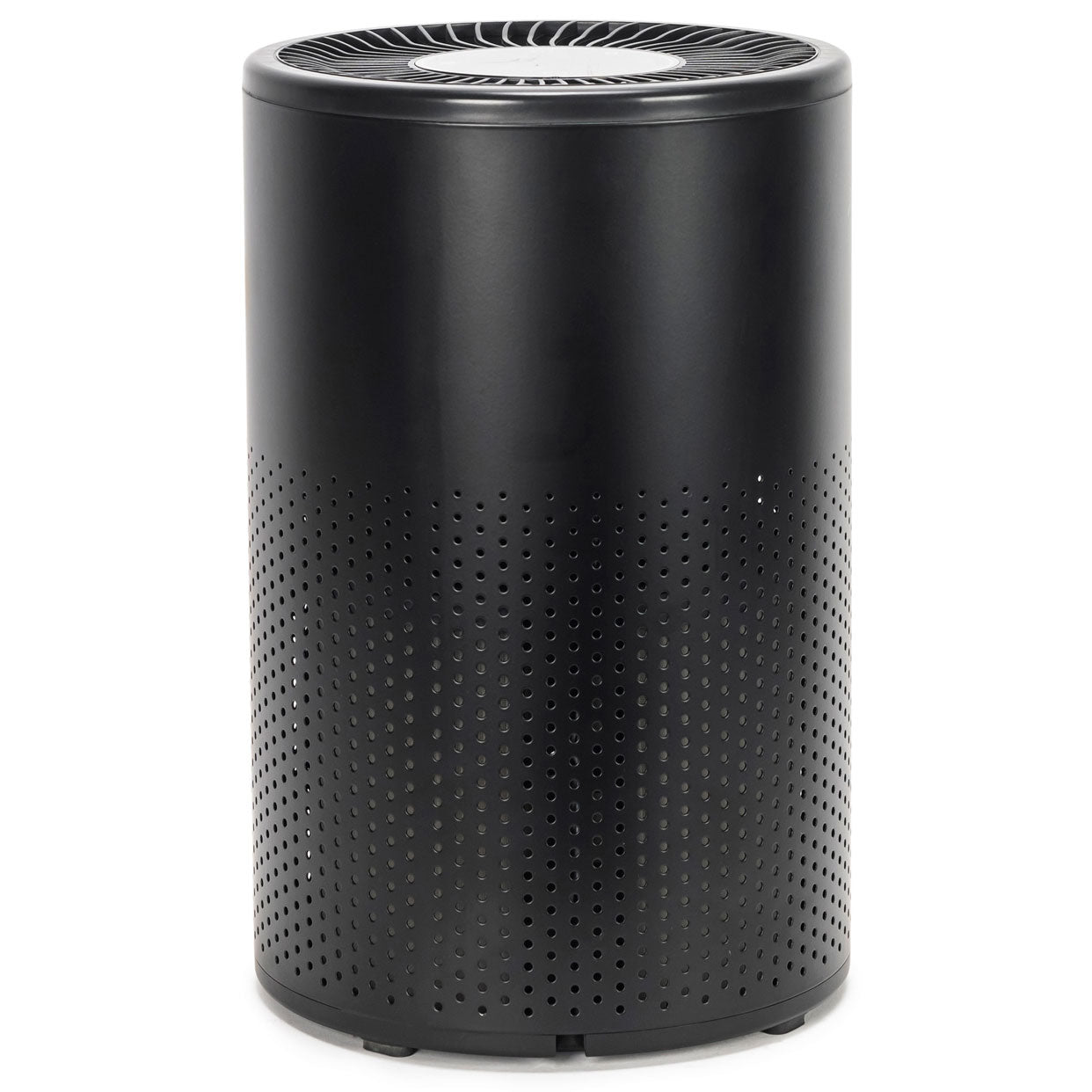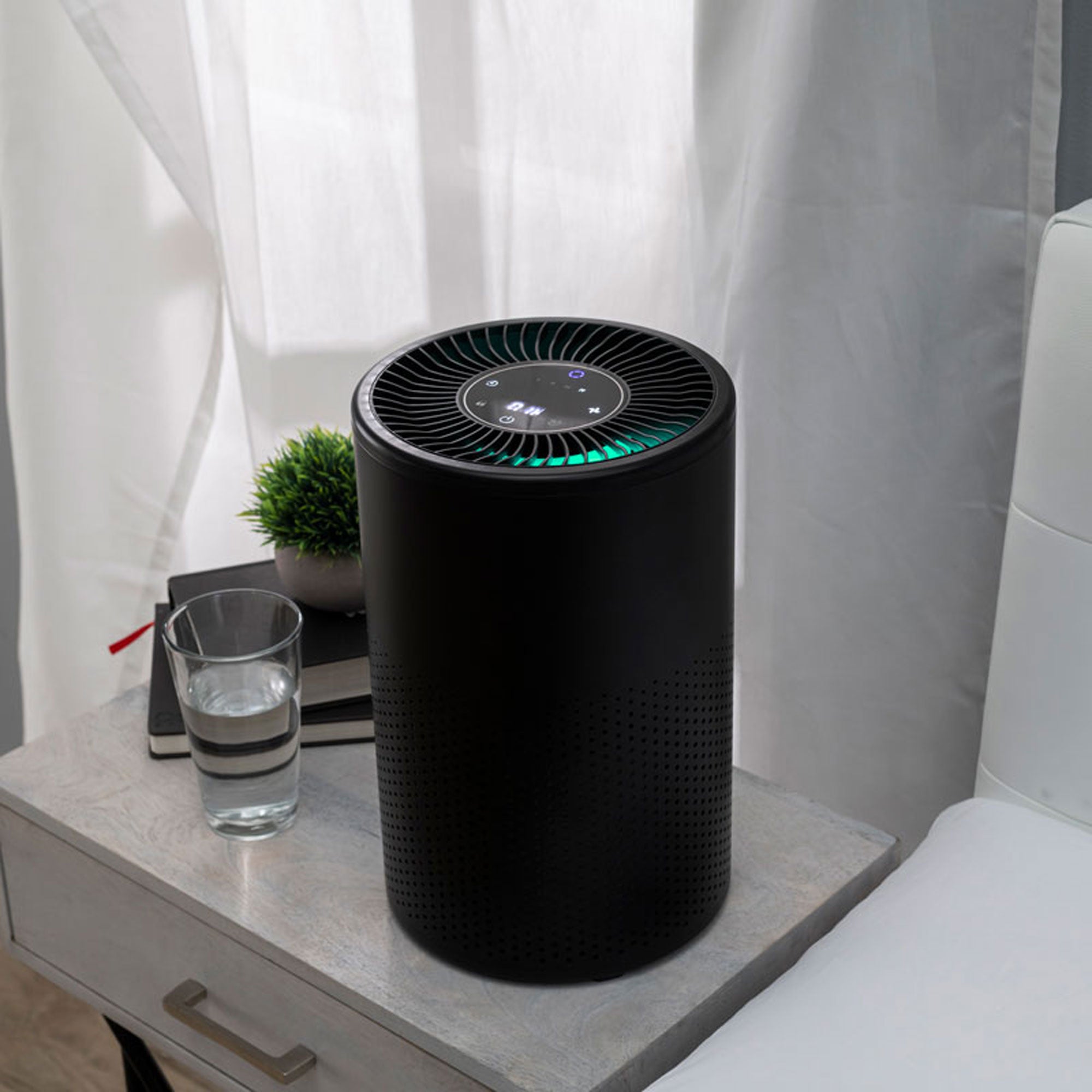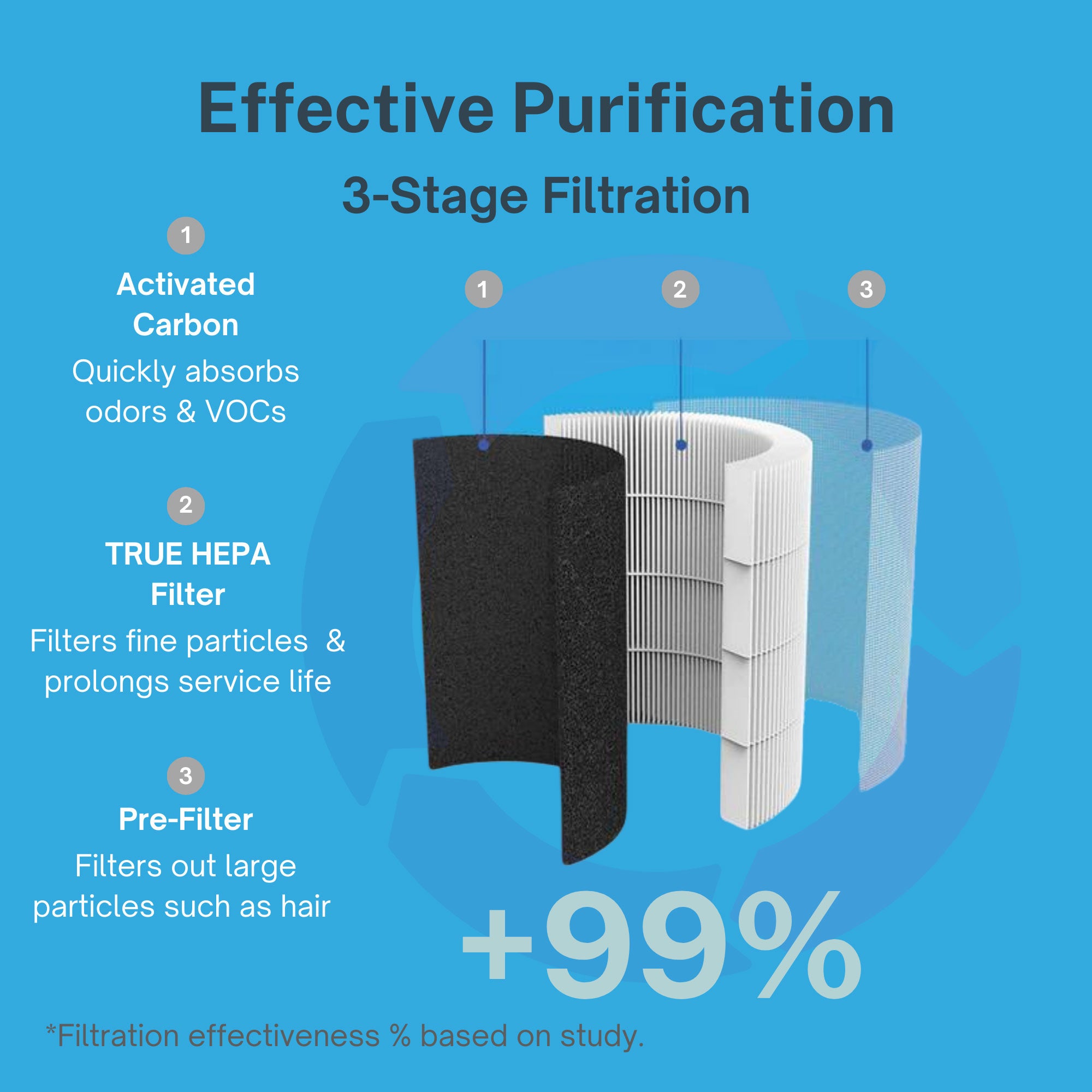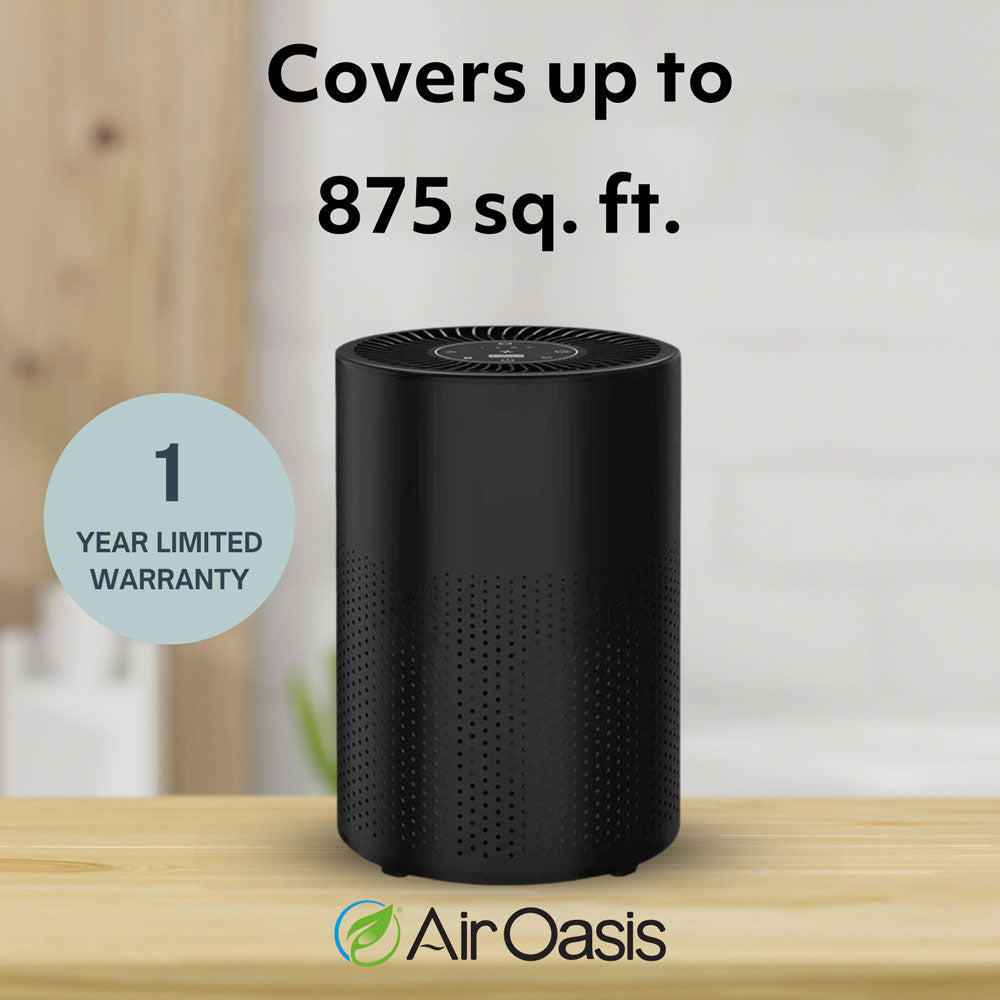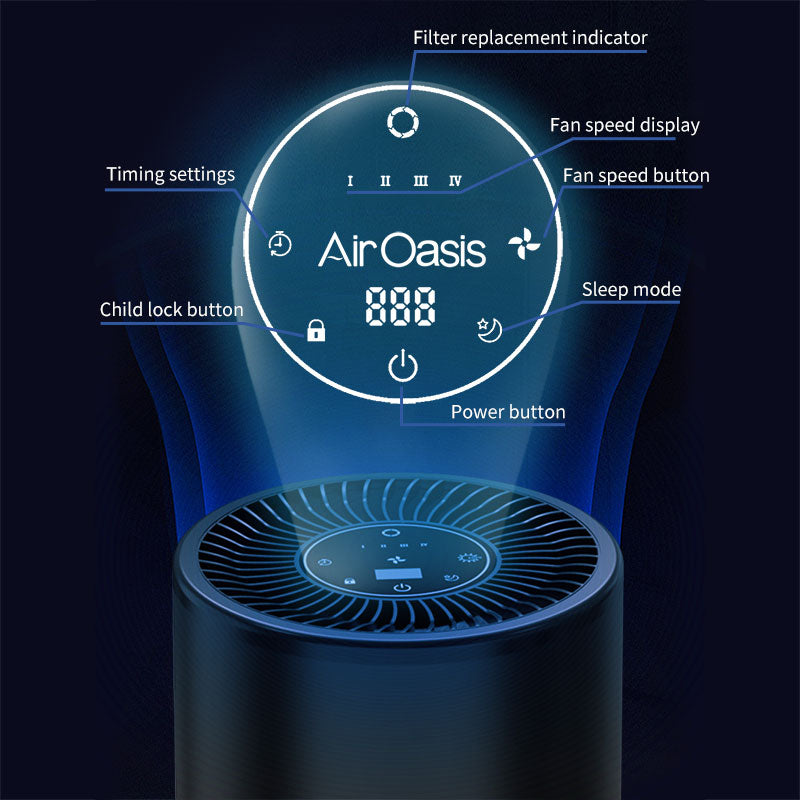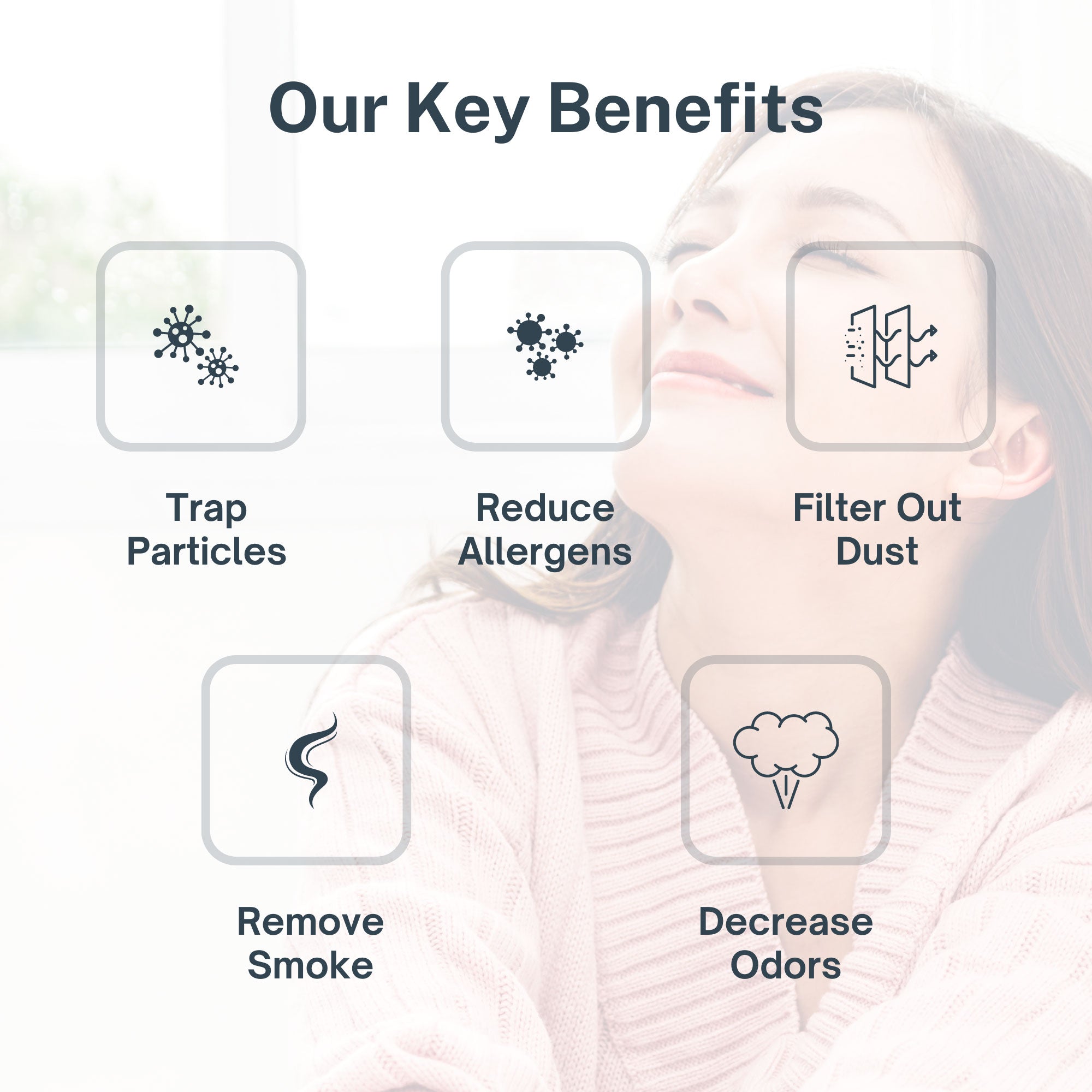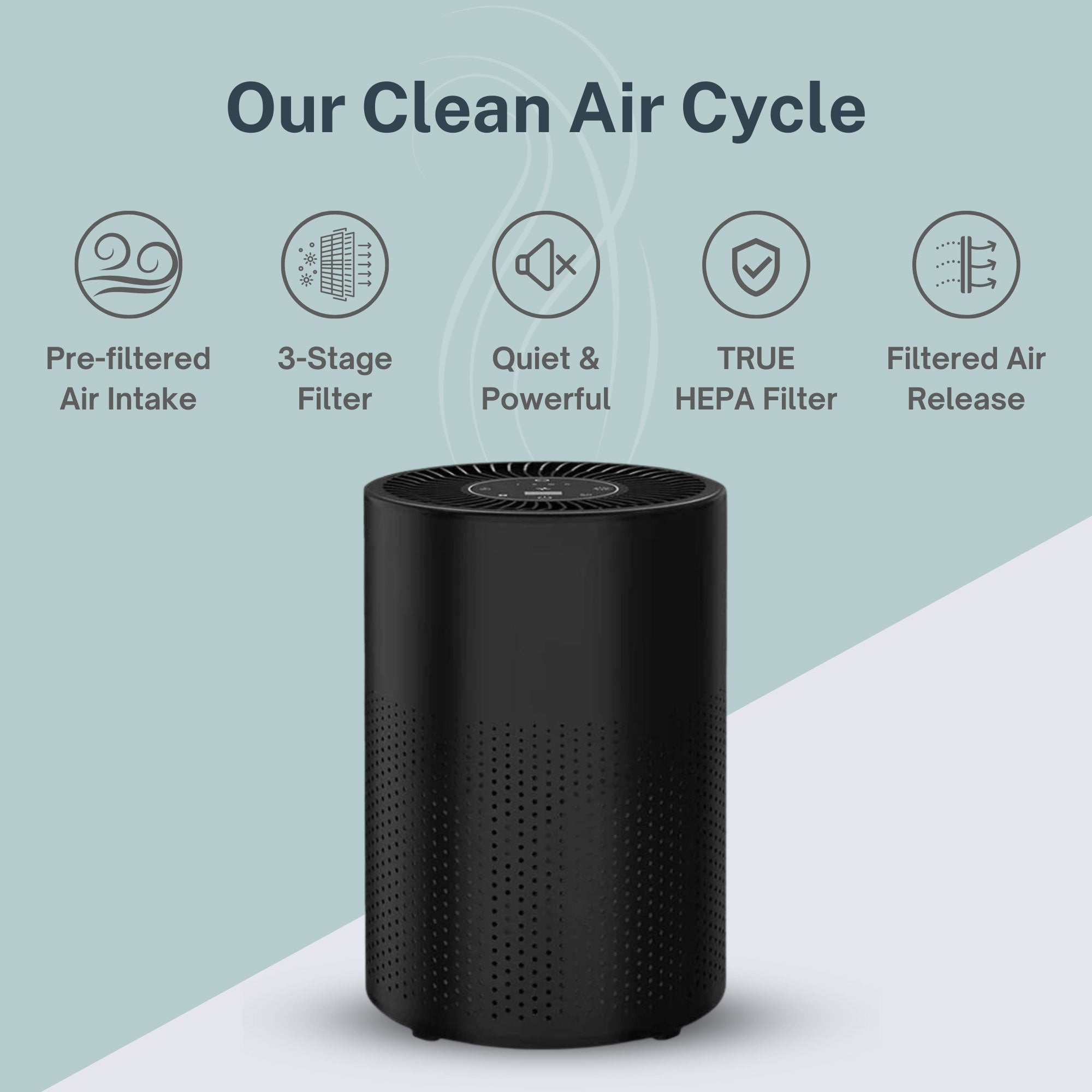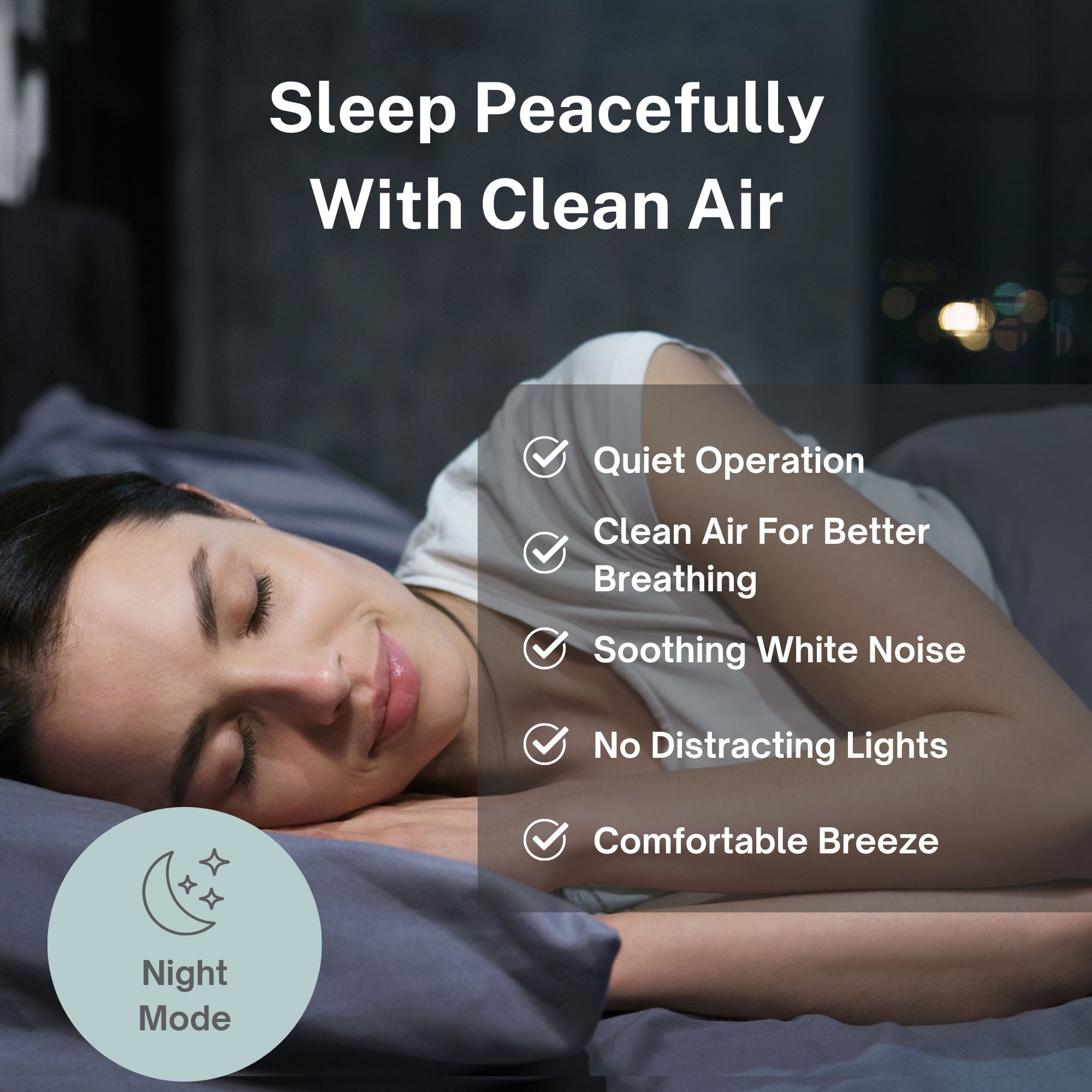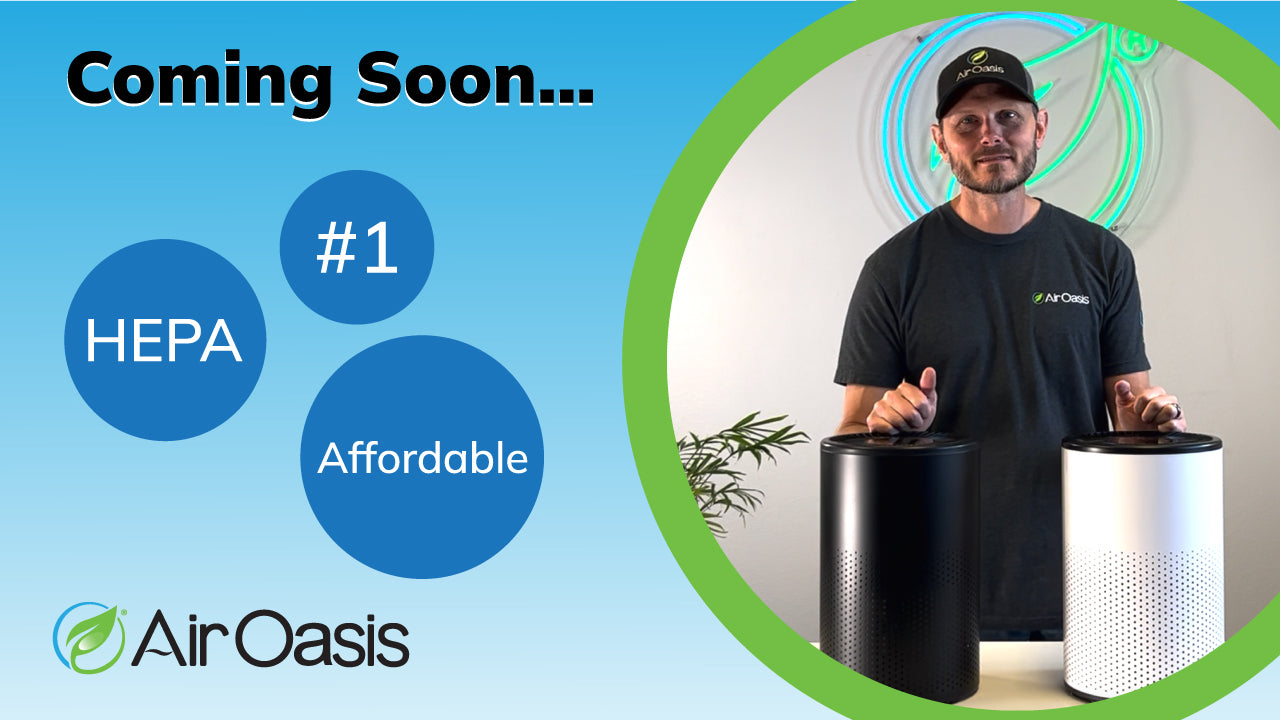If you survived spring and fall allergies, don’t rest easy yet. Believe it or not, the winter months bring their very own set of problems.
As colder temps hit and we head primarily indoors, specific triggers are especially prevalent in the winter. Avoiding and minimizing symptom-causing winter allergies will help you optimize how you feel all winter long.
With HEPA-enabled technology, Air Oasis air purifiers provide needed relief from winter weather and allergies.
Understanding Winter Allergies
Because we typically spend most of the colder winter months indoors, winter allergies are primarily caused by triggers within your home. In fact, winter allergies are sometimes referred to as perennial allergies because they can flare up at any point in the year. Unlike spring and summer allergies which are triggered by outdoor culprits such as pollen, allergies in the winter are triggered by indoor causes. Indoor winter allergen triggers include pet dander, dust mites, mold spores, and mildew.
Symptoms of winter allergies include watery or itchy eyes, dark circles under the eyes, runny or stuffy nose, sneezing, coughing, rashes or dry and itchy skin, morning headaches, and postnasal drip.
While winter allergens are a year-round problem, you notice them more in winter because you spend the most time indoors.
How Does a Warmer Winter Affect Allergies?
If you’re diagnosed with winter allergies, you are likely focused on allergen triggers within your home–and rightfully so. Most winter allergies are worsened by causes within the house as we spend most of our time indoors as the temperatures drop.
However, many don’t know that a warmer winter can increase allergies. How? Unexpectedly warm winter temperatures can cause plants to bloom early. In addition, if you experience a stormy spring climate, plants and mold can be quicker to grow and spread.
For allergy sufferers, this means you are met with allergy triggers indoors and outdoors for most of the year.
Mild Winters and Allergy Symptoms
While there are benefits to a milder winter (i.e., more time outdoors) for allergy sufferers, it means a more extended allergy season.
Warm winter temperatures encourage mold spore growth which causes increased allergy symptoms both indoors and out.
In a typical cold winter, extreme temperatures do not kill mold but can deactivate the spores. Dry air in the winter months typically suppresses mold because fungal spores need food and water to grow. The spores remain dormant until temperatures rise when they begin to multiply. This is one of the main culprits of Spring allergy triggers. But when warmer temps come earlier, this can reactivate mold spores earlier than the typical spring season.
Warm Winters Jumpstart Allergy Season
While it may be tempting for people experiencing warm winter conditions to open a window and let the fresh air in–allergy sufferers beware. Along with the warmth and humidity, pollen and mold spores can also enter through open windows.
As an allergy sufferer, you can still be excited when the frigid temperatures warm up a bit, there are simply some preventive measures you’ll want to take first to help reduce your winter allergy symptoms. The first step? As tempting as it may be, close up those windows and consider running a HEPA air purifier to treat your winter allergies instead.
Close up those windows and head outside to feel the warmth on your skin, and enjoy the outdoors in early bloom!
How to Stop Winter Allergies
Allergy triggers are everywhere, both indoors and outdoors, but there are simple steps you can take to reduce your exposure to allergens and decrease symptoms.
Clean Regularly
Dust mites are one of the most common causes of year-round indoor allergies. These microscopic bugs thrive in carpeting, bedding, and upholstered furniture. Cleaning regularly (i.e., sweeping, vacuuming, mopping, wiping down surfaces, and dusting) is one of the most effective ways to reduce winter allergies.
Reduce Pet Dander
Surprisingly, pet dander (dead skin flakes) causes more acute and chronic allergic reactions in people than actual pet hair. Keeping animals outside, trimming their hair short, and regularly vacuuming your home can help reduce the presence of pet dander in your home.
Prevent Indoor Mold
While many types of mold in the U.S. are not easily visible, if disturbed, mold spores can become airborne and cause allergic reactions. Identify areas in your home where mold may be most likely to grow. Typically areas that come in contact with regular moisture, such as bathrooms, kitchens, or near your dryer (condensation from the heat of your dryer can cause moisture buildup), are your most likely culprits. If you have a mold problem in your home, call the professionals to clean and dispose of mold-affected areas.
Eliminate Pests
While you might think of the spring and summer months when you think of bugs, cockroaches in the winter months produce droppings that can be a common trigger for winter allergies. Be extra vigilant in cleaning up food crumbs, especially in the kitchen and dining area, to limit pests in your home.
Filter Your Air
In most climates, it’s not possible to open your windows and doors to let in some fresh air during colder months. A great alternative is to run an air purifier to reduce allergens in your home, preferably in the rooms you spend the most time in (i.e., the primary bedroom). Bonus? By not opening doors and windows, you won’t be welcoming outdoor allergy triggers or colder temperatures.
Winter Weather Allergies — Air Purifiers for Your Home
Who doesn’t love the idea of a warmer winter?
Unfortunately, it’s not a celebration time for individuals who suffer from allergies.
Winter allergens are typically present indoors, where we spend most of our time in the coldest months of the year. In years where the temps are unseasonably warm, winter allergy sufferers are met with additional outdoor triggers and an extended allergy season.
With the help of Air Oasis’ HEPA-enabled air purifiers, you can filter your indoor air and still celebrate when spring comes early. Shop the iAdapt AirⓇ in three sizes to fit your air purification needs perfectly.





